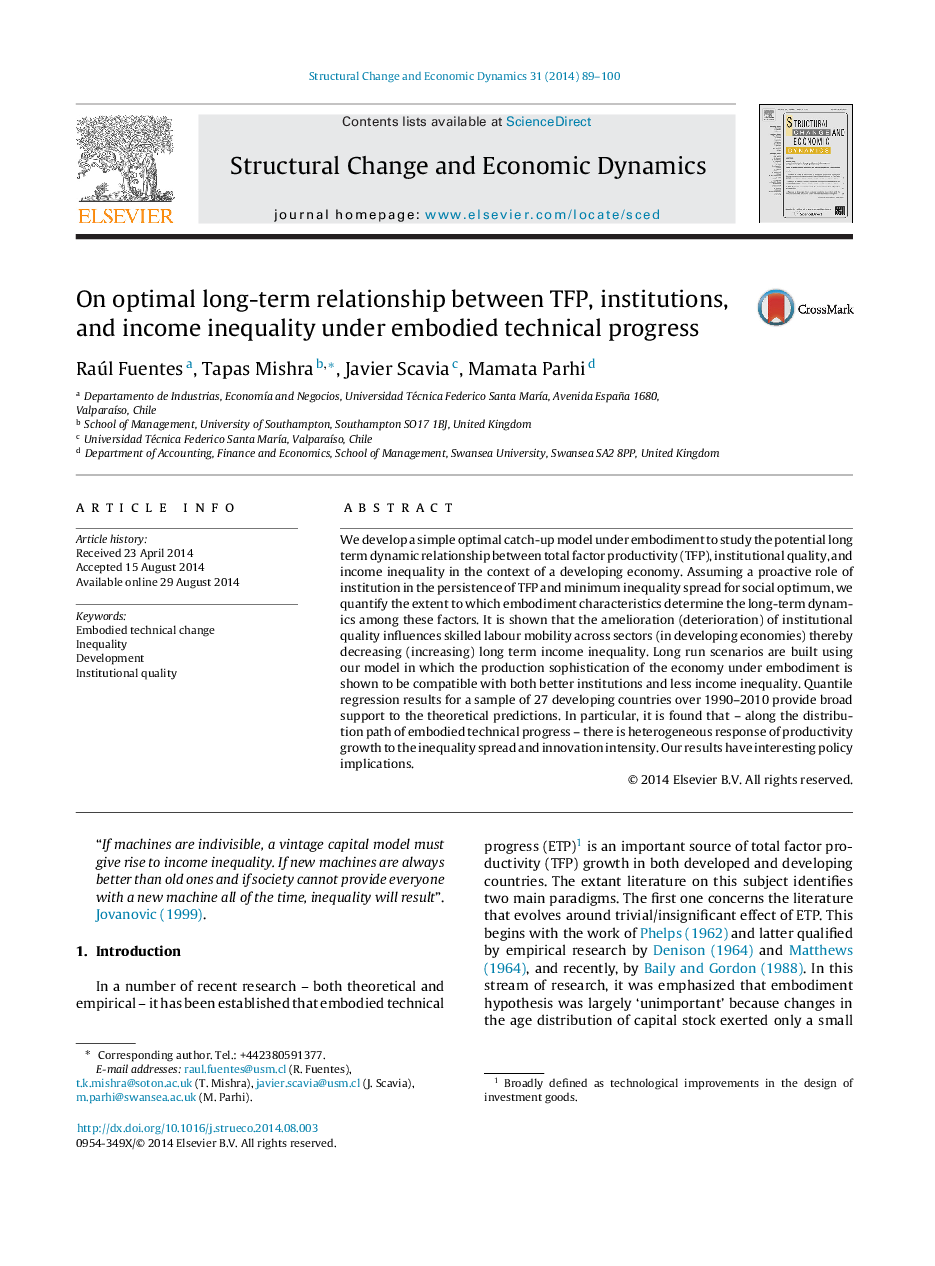| Article ID | Journal | Published Year | Pages | File Type |
|---|---|---|---|---|
| 988425 | Structural Change and Economic Dynamics | 2014 | 12 Pages |
•We study dynamic relationship between TFP, institution and income inequality.•An optimal catch-up model under embodiment (ETP) is developed to quantify effects.•Developing economies are the context of our theoretical and empirical analyses.•We find compatibility of production sophistication under ETP with better institutions.•It is also found to be compatible with less income inequality.
We develop a simple optimal catch-up model under embodiment to study the potential long term dynamic relationship between total factor productivity (TFP), institutional quality, and income inequality in the context of a developing economy. Assuming a proactive role of institution in the persistence of TFP and minimum inequality spread for social optimum, we quantify the extent to which embodiment characteristics determine the long-term dynamics among these factors. It is shown that the amelioration (deterioration) of institutional quality influences skilled labour mobility across sectors (in developing economies) thereby decreasing (increasing) long term income inequality. Long run scenarios are built using our model in which the production sophistication of the economy under embodiment is shown to be compatible with both better institutions and less income inequality. Quantile regression results for a sample of 27 developing countries over 1990–2010 provide broad support to the theoretical predictions. In particular, it is found that – along the distribution path of embodied technical progress – there is heterogeneous response of productivity growth to the inequality spread and innovation intensity. Our results have interesting policy implications.
